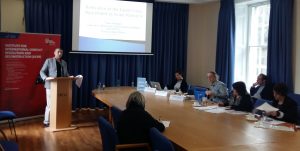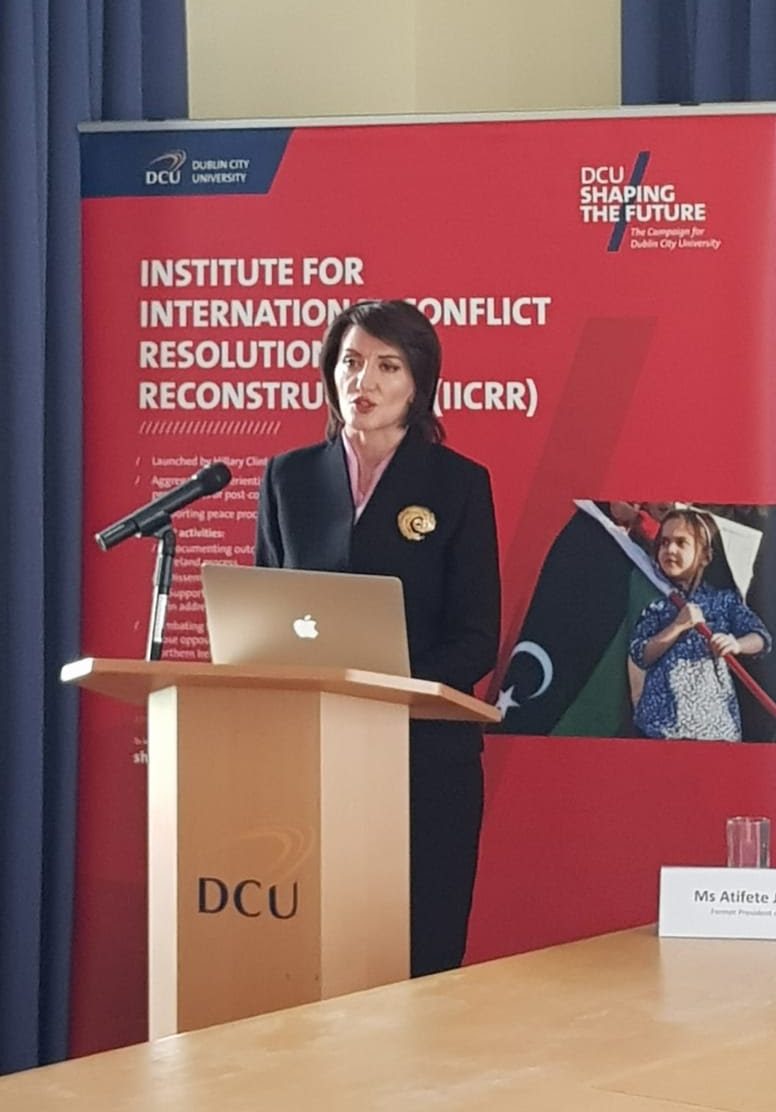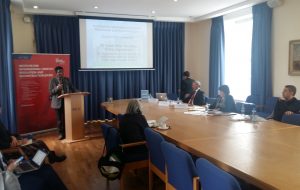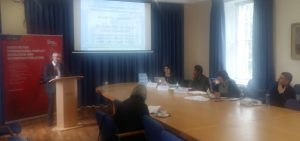
IICRR hosted a conference to mark the 20th anniversary of the Good Friday Agreement on Friday 6th April at DCU Glasnevin Campus. The conference brought together a diverse range of academics, activists and politicians to reflect on the impact of the agreement and its relevance to attempts to resolve other conflicts. Key note addresses were given by Bertie Ahearn (former Taoiseach and negotiator of the Agreement), Bronagh Hinds (co-founder of the Northern Ireland Womens Coalition and chief strategist at the talks) and the closing plenary was given by Atifete Jahjaga (former President of Kosovo). The conference also included panels on the Israel-Palestine conflict with Prof Mark LeVine (University of California at Irvine) and Dr Yaser Alashqar (Trinity College Dublin) and on conflict in South Asia with Prof John Doyle (IICRR Director) and Dr Jude Lal Fernando (Trinity College Dublin).
Bertie Ahern, former Taoiseach and negotiator of the Agreement spoke on the challenges and dynamics of getting the peace talks to the point of an agreement. He spoke of the progress that has been made and reflected on the changes that he never thought he would see in his lifetime. Such as being presented with a jersey from GAA club based on Shankill Road, Belfast. At the height of the troubles it was unthinkable that a GAA club would exist in the Loyalist heartland.
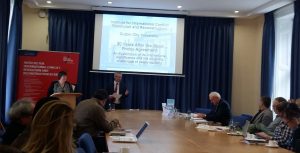
Bronagh Hinds, co-founder of the Northern Irelands Coalition and chief strategist at the talks, spoke on the importance of inclusion in the process. In a divisive political environment of entrenched positions, the NIWC fought for inclusion of all parties and perspectives in the process. She spoke about the strident opposition to a women’s party at the talks and how by being a non-sectarian party they presented a constant challenge to the binary division in the party system in Northern Ireland. She highlighted the key aspects of the Agreement which were only included because of the inclusion of marginalised voices during the talks.
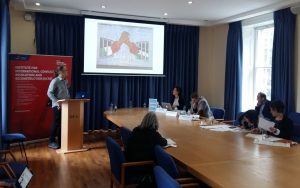
Prof Mark LeVine (University of California at Irvine) and Dr Yaser Alashqar (Trinity College Dublin) spoke on the contrasting failure of the Israel-Palestine peace process. Dr Alashqar highlighted the lack of impartiality in the process with the principal mediator the US favouring Israel throughout the process. Dr LeVine spoke on the way in which the Oslo peace process supplanted grass roots cooperation between Israeli and Palestinian civil society activists. The travel restrictions imposed in the wake of the Oslo agreement greatly reduced the possibility of these interactions.
Prof John Doyle and Dr Jude Lal Fernando spoke on lessons from the Good Friday Agreement that can be applied to conflict in South Asia. Prof Doyle spoke on the case of Kashmir and highlighted the difficulties in military groups buying in to a peace process and losing credibility among their core support. He highlighted the importance of India and Pakistan, the two major players in the conflict, reaching an agreement in order for a peace agreement in Kashmir to progress. Dr Lal Fernando spoke on the case of Sri Lanka and highlighted the importance of the personal and not just the political in studying conflict resolution. He spoke on the contrasting way in which conflict in Sri Lanka was ended through suppression and marginalisation of the Tamil population and the denial of their identity in the Sri Lankan state. Whereas in Northern Ireland there were attempts to reach consensus and multiple national identities are accommodated within the state.
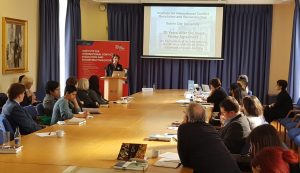
Atifete Jahjaga spoke on the contrast between the Good Friday Agreement and the resolution of conflict in Kosovo and its eventual journey to statehood.
